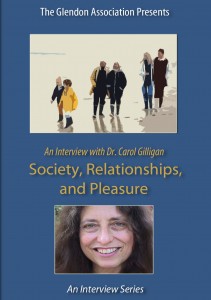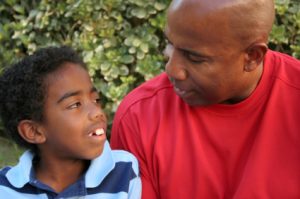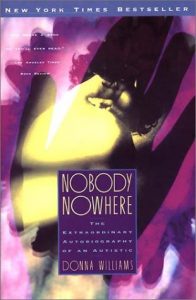Writing "The Birth of Pleasure"
The reason I wrote that book was because it seemed so counter-intuitive, and then, why are we afraid of pleasure? You know, and we had just been talking about it because it’s—if you’ve experienced pleasure or love, which is what we all start with, and then you experience loss…there’s a line in Birth of Pleasure, which I like, which is, you know, “Pleasure is act one in a play that ends badly.”
If you’ve gone through the play and you know that it ends badly and suddenly you’re experiencing pleasure, or you’re feeling love or you’re opening yourself to joy in that way, and you think, “Oh my god, I know how this ends!” And so then you start… it’s easier to tell the story of loss because that story — you live on the far side of it — and you know all the moves of what you can do, you know, afterward but to go back before that happens and to risk that this time maybe it’s not going to end badly—it’s taking a huge risk.
So I was interested why individually, why as a culture, are we so wedded to these stories about loss, the tragic love stories. You know, because I was just reading this really wonderful biography of Frieda Fromm Reichmann you know, the psychoanalyst who worked at Chestnut Lodge who was the analyst for Joanne Greenburg, who wrote, I Never Promised You A Rose Garden.
And when she [Dr. Reichmann] demonstrated that by establishing the relationship she did with Joanne, she was able to … they were able together, for Joanne to move from this incredibly destructive psychosis into, you know, coming back into leading a life that involved, you know, love and children and writing and all this kind of thing.
And then everyone attacked Frieda Fromm Reichmann and Joanne Greenburg, because if she [Dr. Reichmann] demonstrated that it could be done [curing a psychosis], then it meant that actually people could do that, where it was easier to say, “Well, [obviously] she couldn’t have been psychotic because if she had been psychotic it wouldn’t have worked.”
So I think that’s also true—if love ends badly and tragically, and [if I were to believe that] it always does, then I don’t have to really question, you know, what I’m doing, and [instead be able to] say, “Well maybe it doesn’t have to end this way.” So it really felt to me like a very revolutionary book to write.
Order the Full DVD Interview:
 Society, Relationships and Pleasure
Society, Relationships and Pleasure
In this DVD, Dr. Carol Gilligan addresses a variety of topics including feminism, patriarchy, relationships, pleasure, parenting, and psychotherapy. She dispels myths regarding feminism that have pervaded both professional discourse and popular media for the past three decades, describing how “patriarchy creates a rift in the psyche, dividing everyone apart from themselves.” She discusses relationships and parenting, including the dynamics of mother-son and mother-daughter relationships. Finally, Dr. Gilligan addresses the dilemma of pleasure, stating that “pleasure is act one in a play that ends badly.” Emphasizing its importance, she describes how people often defend against pain by not feeling pleasure.









Leave a Reply